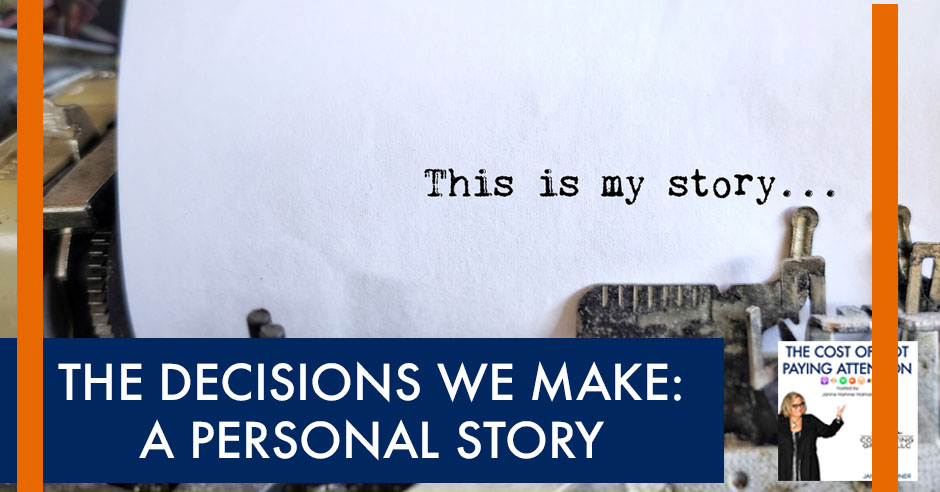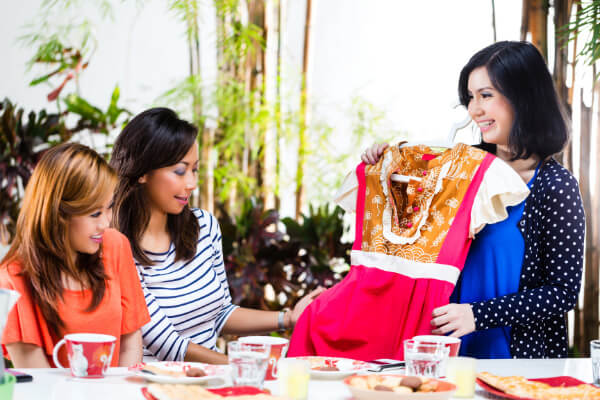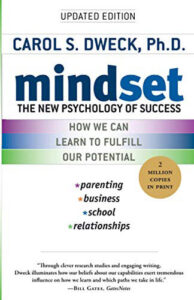
We make up different stories about ourselves and believe them to be true. Unfortunately, more often than not, these stories tend to be disempowering and are one of the things that keep us from fully loving ourselves. In this solo episode, Janine Hamner Holman shares some of her personal stories and reflects on how we live into those stories as if they are THE TRUTH. She bares her heart as she tells us about her struggle with body image from a young age and how this impacted her marriage. Learn how to break free from these harmful internalized criticisms and make the decision to create better stories.
HOST: Janine Hamner Holman | [email protected] | LinkedIn, Facebook, and Twitter | Subscribe to my Newsletter! Book me to Speak!
—
Listen to the podcast here
The Decisions We Make: A Personal Story
Today I am doing a different episode. This is a solo episode, and a personal one. I’m going to tell you some stories about myself and use them to explore how we make decisions about ourselves, other people, and our lives, and how we live into those stories as though they are real and the truth. If you are a frequent reader of the blog post, you may have read that I am a person who has struggled with weight my entire life. If not, you will read about it now.
That is both something that is factually correct and a story. What do I mean by that? I can remember being a little kid, being chubby, and feeling self-conscious. I have lost and gained a lot of weight over the course of my life. I have been on almost every diet that you’ve ever heard of. I have been overweight and at a healthy weight. All of those are facts. I have a story about what it is to be a woman in the US who struggles with her weight.
There are many stereotypes about people who are overweight. These include:
- We lack discipline and willpower.
- We are sloppy, stupid, and lazy.
- It is bad to be fat.
What is worse is that by age nine, studies tell us that most girls who are overweight have largely internalized negative messages around their weight. What that means is that we now agree at nine years old that we are stupid, sloppy, lazy, and bad. We have something to be ashamed of.
I’d like to take tell you a little when I was a young girl. I can’t remember exactly how old I was. I think that my little brother had been born, which means that I was more than six and a half. I don’t think I was much older than that. There were a bunch of kids, including me, who were all in a pond together while our parents were all on the shore together. We were all staying at this great house somewhere in the woods. What is important to know about all of the kids who were in the pond is that we were skinny dipping. Given our show is now in 24 countries, everyone may not be familiar with the term skinny dipping, which means we weren’t wearing our bathing suits. In fact, we weren’t wearing anything. We were naked because we were children, probably around six years old, and we were all playing in the pond.
I don’t remember why, but there was a log that we wanted to move. I don’t remember why I thought I should be the person to move the log, but I had that thought. “I should be the person to move the log.” The problem was if I got out of the water, the other kids could see my fat, and I was ashamed. Instead, what happened was I yelled up to my mom, “Mom, can you put on your shoes? Can you go to the house, get your shoes, and come back here to move this log?!”
There may have been some other steps to the whole process that needed to happen for my mom to be able to move the log. She didn’t do any of those things, and she wasn’t about to. It became one of those family jokes, “Mom, can you get up, go in the house, get your shoes, come out here and move this log?”
What this story is about for me is being ashamed of my body when I was approximately six years old. I had internalized that my body was bad.
In a study published by the Journal of Applied Psychology, when children responded to the question, “Do you like the person you are?” we respond negatively when we are overweight by age seven. We have gotten the message and made it mean that we are bad, and somehow “less than” people who are not overweight. I had already figured that out at six.
There's no such thing as happily ever after. We get to create our ever afters and our happiness. Click To TweetNow we have a story about who we are. If someone laughs or happens to look in our direction, we are sure that they are laughing at us and laughing at us because we are fat. It is the lens through which we perceive ourselves in the world. Can you see it? In her seminal work, Mindset: The New Psychology of Success, author and researcher Dr. Carol Dweck writes, “Many females have a problem not only with stereotypes but with other people’s opinion of them in general. They trust them too much.”
Girls learn to trust other people’s estimations of them. Boys are constantly being scolded and punished. When we observed in eighth-grade classrooms, we saw the boys got eight times more criticism than girls for their conduct. Boys are also constantly calling each other slobs and morons. Other people’s evaluations lose a lot of their power.
What Dr. Dweck is pointing to is the drastically different ways in which cisgender boys and girls are socialized both by their caregivers and by each other. Girls are still praised for being cute, sweet, polite, pretty, and nice. They praise and evaluate each other for these same and similar qualities. Boys are physically aggressive and verbally aggressive with each other. They joke about farts and other bodily functions and call each other names.
As a result and as a group, in which there are exceptions of course, women tend to be impacted more severely and deeply by criticism than men. Let me be clear. Men are affected too. These kinds of things impact men however, women, especially young girls, are significantly more likely to internalize the criticism and have it do us harm. It is the difference between doing a bad thing and being bad.

Personal Stories: “Many females have a problem not only with stereotypes but with other people’s opinion of them in general. They trust other people’s opinions too much.”
Many girls and women, including me, have in the past collapsed other people’s criticism, such that it has the potential to affect us as though “I am bad” instead of a more dispassionately observed conclusion, such as “I did something that this one person might think isn’t great,” which would be a much healthier interpretation.
Throughout my life, even when I’m thin, I still have this same story about myself. It is deeply ingrained. Even though I’m aware of and can articulate all of this, I can’t seem to change my internal narrative. Part of how this effects me is that I am especially sensitive to comments about weight, anyone’s weight, and especially my own. It is my own personal third rail. It is common for people, especially women in the US, who struggle with their weight.
Now that you have the whole world of what this is, imagine that six months into my marriage, my husband said something about my weight. It hurt me. It doesn’t matter what he said. What matters is what I made it mean. I made it mean that he was no longer trustworthy, and he fundamentally didn’t have my back. Even though he tried to apologize and take it back, I was deeply wounded and felt that I couldn’t trust him.
For the next several years, I had one foot out of my marriage. I never said that to anybody, but looking back, it was completely true. During every fight, in the back of my mind was the question, “Is this going to be the end? Is this going to be what destroys our marriage?” As you can imagine, this had a huge impact, both on the quality of my marriage and on my life. I was often angry, hurt, frustrated, and sad. I knew that I was in love with my husband and that I was also deeply unhappy. I pushed to get us into therapy and got busy working on figuring out my part of what was happening.
What might be possible if you threw out that story and created a new one? Click To TweetAt the end of 2021, I got to spend ten days with my parents, with whom I have a close relationship. My mom was having a hard time then, mostly because both of her kids were having a hard time. My mom is a champion worrier who is the child of two extraordinary people who were also big worriers. I tell you this because I had the experience over those ten days of getting to see what worry looks like from the outside. I had the experience of watching my mom worry about me and my brother. I realized that was how I was approaching my marriage with constant worry on perpetual alert, always waiting for the other shoe to drop and wondering if this was the end.
On that same trip at the end of 2021, I got to have a wine-filled lunch with a dear friend. Over our boozy lunch, she was telling me that her husband has a tendency to buy her lingerie as a present, but as a present for her, instead of what it is, a present for him, because in his plan, she would put on lingerie and some heels and prance around. We all know this husband. As she was telling me this story, I thought, “When was the last time I pranced around in lingerie?”
It is easy for me to say, “When I have the body that I want, I will get to prancing.” Let’s tell the truth here. Almost no woman thinks that her body is perfect. Goodness knows when the day will come that I have the body that I want, probably the day after the twelfth of never. What if I decided to put down all my stories about myself, my marriage, and my body? What if I decided I was in my marriage for good? What if I found some lingerie that I liked, felt good in, and did some prancing?
I had a conversation with my husband about the possibility of both of us deciding that no one was leaving our marriage. We both committed to that change of perspective. I bought a bunch of lingerie from a store called Torrid, which has paid zero for this plug. I’m happy to give them a big shout-out. You can find them online. Their clothes and lingerie are awesome. I did some prancing. Although it is not all sunshine and unicorns, since I made this shift, I can tell you that my relationship with my husband and with myself is healthier and happier. We all think that is an option for which I blame Cinderella and Snow White because there is no such thing as happily ever after. We get to create our ever afters and our happiness.
What if part of how we do this is by changing the stories that we have decided are true and writing a new story. After making our new commitment, my husband and I had a big fight and it felt different. Even as I was in the midst of the fight, I also had the thought, “Isn’t it wild how this isn’t making me afraid?” I’m not thinking it is the end because no one is going anywhere. It is a fight. I get to help us work through it, and we will be fine, which we are.
I am grateful that I get to work with people and organizations about the stories that we create, both the positive and the negative ones, and how profoundly these stories affect our realities.
I’m encouraging you to go on a journey of discovery to find the stories that you have about your organization, partners, work, life, and kids. Where are you living as though the story is the truth? What might be possible if you threw out that story and created a new one?
If you have enjoyed this show, please let me know. Leave us a review on Apple or in the show notes on my website, JanineHamner.com/blogs. That’s where you can leave the reviews. There are some things in life that never entirely make sense. Let me know if you like these solo episodes. If so, I will continue to find opportunities to create them. Remember, great leaders make great teams. Until next time.
Important Links
- Mindset: The New Psychology of Success
- Torrid
- Apple Podcasts – The Cost of Not Paying Attention
- JanineHamner.com/blogs






